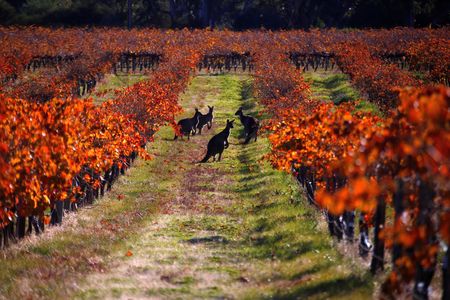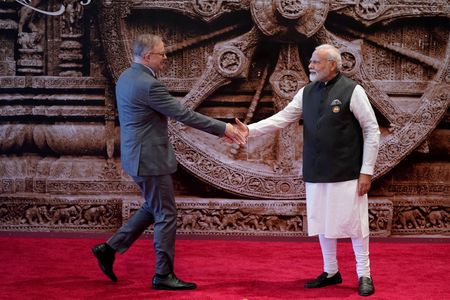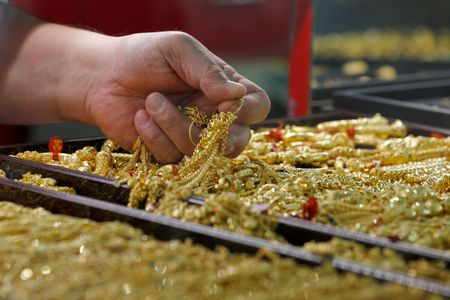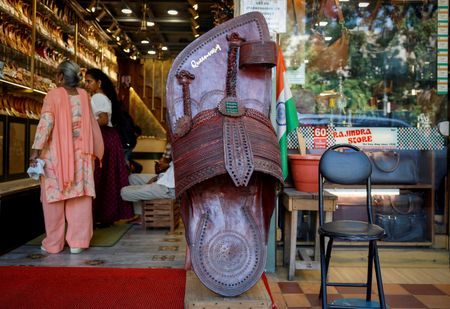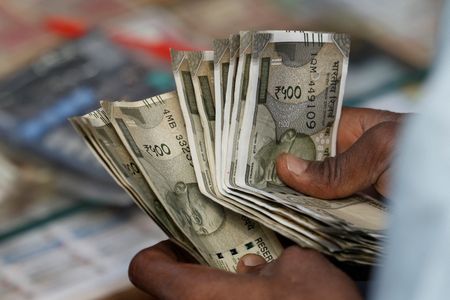By Manoj Kumar, Peter Hobson and Khushi Malhotra
NEW DELHI/CANBERRA (Reuters) -India has rejected Australia’s push for deeper tariff cuts on dairy and alcohol, hampering efforts to conclude the second phase of a trade pact by year-end, two Indian government sources said.
An interim trade pact signed in 2022 lowered tariffs on a range of goods, but negotiations on a broader Comprehensive Economic Cooperation Agreement (CECA) covering goods, services and visas have slowed, with dairy and wine emerging as key sticking points, the sources said.
The officials declined to be named as they were not authorised to speak to media on confidential trade talks.
India’s commerce ministry and Australia’s Department of Foreign Affairs and Trade did not immediately respond to requests for comment.
India’s refusal to concede on politically sensitive dairy and agriculture products reflects mounting pressure from powerful farm groups, which is also shaping trade talks with other partners, including the United States.
“There is no question of agreeing to Australia’s demands for further tariff cuts on dairy and wine,” a senior Indian official with direct knowledge of the talks with Australia told Reuters.
“It could have an impact on millions of farmers and our nascent wine industry and grape producers.”
Farmer groups and politicians from Prime Minister Narendra Modi’s home state Gujarat and grape-growing Maharashtra, along with the $35 billion alcoholic beverages industry, are strongly opposing any concessions, the official added.
Under the interim pact, tariffs on Australian wine priced above $5 per 750ml bottle were cut to 100% from 150%, with a provision of a reduction to 50% over 10 years, while for bottles above $15, tariffs dropped to 75%, with a target of 25% in a decade.
Australia is pushing to accelerate these cuts and gain better access for dairy products – including cheese, high- protein whey concentrate, lactose and processed items – currently taxed between 20% and 30%.
“We’d like to see a reduction in the price at which tariff reductions kick in and a speeding up of those reductions,” said Lee McLean, CEO of industry body Australian Grape & Wine, noting rising demand could benefit both Indian and Australian winemakers because they make different products.
Even relatively affordable Australian wines, he added, can retail for over A$100 ($65.77) in India due to high tariffs and taxes, despite costing just A$10-15 at home.
Karl Ellis of Dairy Australia said India’s vast and culturally sensitive dairy sector limits mainstream exports, but niche products like high-protein whey, lactose, and select cheeses offer promise.
“Current tariffs are prohibitive,” he said, adding lower duties could help Australia tap into the $30-40 million market now served by European exporters.
Despite the impasse, officials on both sides remain hopeful.
India is open to offer cutting tariffs on non-agricultural goods, including industrial items, while seeking more access for services and visas, a second official said.
The Australian Department of Foreign Affairs said the talks for CECA are backed by both prime ministers, and conclusion of the pact would boost two-way trade, while building a more resilient economic partnership.
($1 = 85.8730 Indian rupees)
($1 = 1.5205 Australian dollars)
(Reporting by Manoj Kumar, Khushi Malhotra in NEW DELHI; Peter Hobson in CANBERRA)

